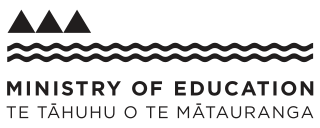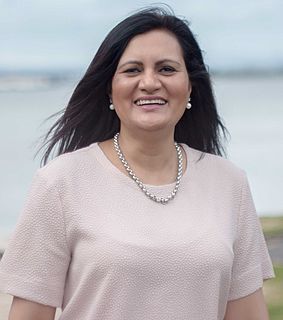
Genetic engineering, also called genetic modification or genetic manipulation, is the direct manipulation of an organism's genes using biotechnology. It is a set of technologies used to change the genetic makeup of cells, including the transfer of genes within and across species boundaries to produce improved or novel organisms. New DNA is obtained by either isolating and copying the genetic material of interest using recombinant DNA methods or by artificially synthesising the DNA. A construct is usually created and used to insert this DNA into the host organism. The first recombinant DNA molecule was made by Paul Berg in 1972 by combining DNA from the monkey virus SV40 with the lambda virus. As well as inserting genes, the process can be used to remove, or "knock out", genes. The new DNA can be inserted randomly, or targeted to a specific part of the genome.

Genetically modified foods, also known as genetically engineered foods, or bioengineered foods are foods produced from organisms that have had changes introduced into their DNA using the methods of genetic engineering. Genetic engineering techniques allow for the introduction of new traits as well as greater control over traits when compared to previous methods, such as selective breeding and mutation breeding.

Sir Geoffrey Winston Russell Palmer is a New Zealand lawyer, legal academic, and past politician, who was a member of Parliament from 1979 to 1990. He served as the 33rd Prime Minister of New Zealand for a little over a year, from August 1989 until September 1990, leading the Fourth Labour Government. As Minister of Justice from 1984 to 1989, Palmer was responsible for considerable reforms of the country's legal and constitutional framework, such as the creation of the Constitution Act 1986, New Zealand Bill of Rights, Imperial Laws Application Act, and the State Sector Act. He served as president of the New Zealand Law Commission, from 2005 to 2010.
A royal commission is a major ad-hoc formal public inquiry into a defined issue in some monarchies. They have been held in the United Kingdom, Australia, Canada, New Zealand, Malaysia, Mauritius and Saudi Arabia. A royal commission is similar in function to a commission of inquiry found in other countries such as Ireland, South Africa, and regions such as Hong Kong. It has considerable powers, generally greater even than those of a judge but restricted to the terms of reference of the commission. These powers include subpoenaing witnesses, taking evidence under oath and requesting documents.

The Ministry of Education is the public service department of New Zealand charged with overseeing the New Zealand education system.

The River class was a class of six destroyer escorts operated by the Royal Australian Navy (RAN). Plans to acquire four vessels, based on the British Type 12M frigate, began in the 1950s. The first two vessels had some slight modifications to the design, while the next two underwent further changes. Two more ships were ordered in 1964, following the Melbourne-Voyager collision; these were based on the Type 12I frigate.
Sir Johann Thomas Eichelbaum was a New Zealand jurist who served as the 11th Chief Justice of New Zealand.

Hochstetter's frog or Hochstetter's New Zealand frog is a primitive frog native to New Zealand, one of only four extant species belonging to the taxonomic family Leiopelmatidae. They possess some of the most ancient features of any extant frogs in the world.
Report of the Royal Commission on Genetic Modification was published in 2001 by the government appointed Royal Commission on Genetic Modification.

A genetically modified soybean is a soybean that has had DNA introduced into it using genetic engineering techniques. In 1996 the first genetically modified soybean was introduced to the U.S. market, by Monsanto. In 2014, 90.7 million hectares of GM soy were planted worldwide, 82% of the total soy cultivation area.
Genetically modified canola is a genetically modified crop. The first strain, Roundup Ready canola, was developed by Monsanto for tolerance to glyphosate, the active ingredient in the commonly used herbicide Roundup.

The regulation of genetic engineering varies widely by country. Countries such as the United States, Canada, Lebanon and Egypt use substantial equivalence as the starting point when assessing safety, while many countries such as those in the European Union, Brazil and China authorize GMO cultivation on a case-by-case basis. Many countries allow the import of GM food with authorization, but either do not allow its cultivation or have provisions for cultivation, but no GM products are yet produced. Most countries that do not allow for GMO cultivation do permit research. Most (85%) of the world's GMO crops are grown in the Americas. One of the key issues concerning regulators is whether GM products should be labeled. Labeling of GMO products in the marketplace is required in 64 countries. Labeling can be mandatory up to a threshold GM content level or voluntary. A study investigating voluntary labeling in South Africa found that 31% of products labeled as GMO-free had a GM content above 1.0%. In Canada and the USA labeling of GM food is voluntary, while in Europe all food or feed which contains greater than 0.9% of approved GMOs must be labelled.
This is a list of notable events relating to the environment in 2001. They relate to environmental law, conservation, environmentalism and environmental issues.
This is a list of notable events relating to the environment in 1978. They relate to environmental law, conservation, environmentalism and environmental issues.

Seeds of Distrust: The Story of a GE Cover-up was a study of government processes and decision making under New Zealand's Labour-led government written by Nicky Hager. The setting was an incident in November 2000, during the Royal Commission on Genetic Modification, when government officials were alerted to evidence of an accidental release of genetically modified corn plants, which was illegal under New Zealand law. The book traces the stages of industry lobbying and government decision making leading up to a decision to regard the incident as insignificant and keep it secret from the public.

A genetically modified tree is a tree whose DNA has been modified using genetic engineering techniques. In most cases the aim is to introduce a novel trait to the plant which does not occur naturally within the species. Examples include resistance to certain pests, diseases, environmental conditions, and herbicide tolerance, or the alteration of lignin levels in order to reduce pulping costs.

Dr Parmjeet Parmar is a New Zealand politician who was elected to the New Zealand parliament at the 2014 general election as a representative of the New Zealand National Party and became the first Indian born woman to become a Member of the New Zealand Parliament. She was appointed as the Opposition Spokesperson for Research, Science and Innovation from 03 Nov 2017, and Statistics on 16 July 2020 and Opposition Associate Spokesperson for Economic Development on 12 March 2018. She was made the Chairperson of the Education and Workforce Select Committee in her second term from 14 May 2018 to until the end of that term and the Deputy Chairperson of the Transport and Industrial Relations Select Committee in her first term.
Veronika Meduna is a scientist, science journalist and broadcaster who was the founding New Zealand editor of The Conversation.
This article discusses topics relating to genetic engineering within Oceania. Currently New Zealand and Australia require labeling so consumers can exercise choice between foods that have genetically modified, conventional, or organic origins.








